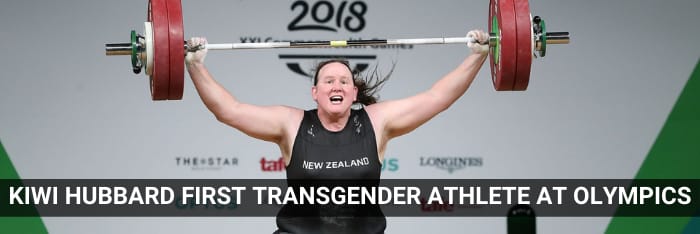New Zealand’s Hubbard First Transgender Athlete At Olympics
New Zealand weightlifter Laurel Hubbard will become the first ever transgender person to compete at the Olympics.
Officials have selected her for the women’s weightlifting team for Tokyo 2020, after qualifying requirements were recently modified.
Before coming out as transgender in 2013, she had competed at men’s events, and critics say she has an unfair advantage, while others have argued for inclusion at the Games.
Hubbard will compete in the women’s 87-kg weightlifting category.
The 43-year-old became eligible to compete at the Olympics when the International Olympic Committee (IOC) changed its rules in 2015 allowing transgender athletes to compete as a woman if their testosterone levels are below a certain threshold.
Testosterone is a hormone that increases muscle mass.
“I am grateful and humbled by the kindness and support that has been given to me by so many New Zealanders,” Hubbard said in a statement issued by the New Zealand Olympic Committee on Monday.
Although Hubbard’s testosterone levels are below the threshold, critics say her participation is unfair on female-born athletes due to the biological advantages of those who have gone through puberty as males, such as increased bone and muscle density.
Last month Belgian weightlifter Anna Vanbellinghen, who is competing in the same category, said that if Hubbard were selected for Tokyo it would be “like a bad joke”.
While she stressed that she was supportive of the transgender community, she felt that it unfairly disadvantaged other competitors.
“Anyone that has trained weightlifting at a high level knows this to be true in their bones: this particular situation is unfair to the sport and to the athletes,” she said in May. “Life-changing opportunities are missed for some athletes – medals and Olympic qualifications – and we are powerless.”
But New Zealand’s government and the country’s top sporting body have backed her inclusion for the upcoming Games.
“As well as being among the world’s best for her event, Laurel has met the IWF eligibility criteria, including those based on IOC Consensus Statement guidelines for transgender athletes,” New Zealand Olympic Committee chief executive Kereyn Smith said.
“We acknowledge that gender identity in sport is a highly sensitive and complex issue requiring a balance between human rights and fairness on the field of play.
“As the New Zealand team, we have a strong culture of ‘manaaki’ (respect) and inclusion and respect for all.”
/Stewart Sports news editor



